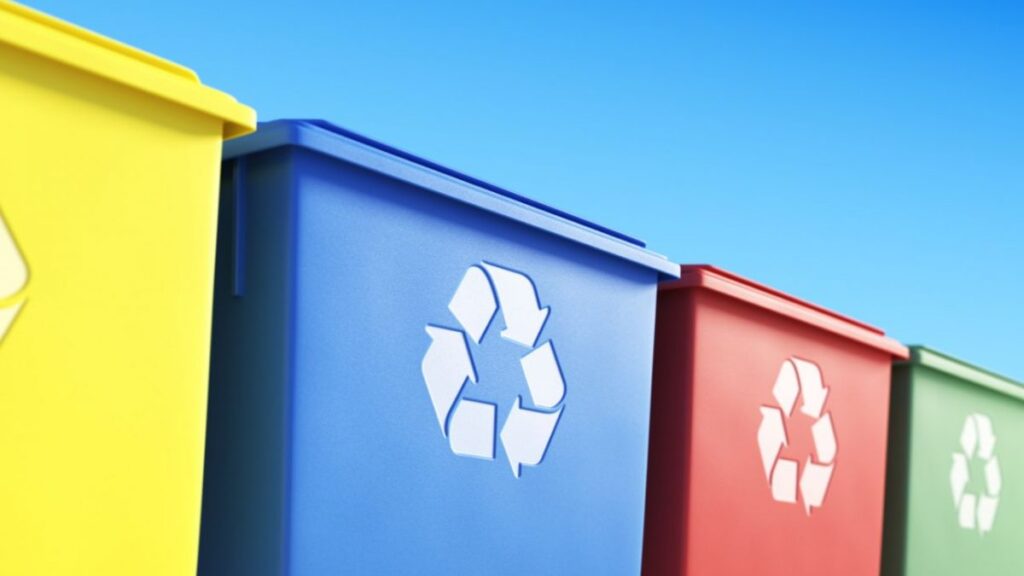Home ownership comes with a myriad of responsibilities, and one crucial aspect that often goes overlooked is waste management. The way we handle and dispose of household waste plays a significant role in pest control.

In this article, we will explore the vital connection between proper waste management and keeping pests at bay, highlighting the importance of adopting a holistic approach to maintain a pest-free home.
Understanding the Link Between Waste and Pests.
Household waste, if not managed properly, can attract a variety of pests. Common household pests, such as rodents, ants, cockroaches, and flies, are drawn to the scent of food remnants and the shelter provided by waste materials. Improper disposal of organic waste, in particular, creates an environment conducive to pest infestations. Every day waste should be disposed of in the right bins and handled with care to ensure that it is not left out to attract pests. Larger waste should be dealt with by services that provide professional waste management near you. If you are decluttering or renovating, leaving these materials near your home or on your lawn, is just going to invite these pests to explore, putting them closer to your house and potentially getting inside.
Food Residues and Pests.
Leftover food scraps in improperly sealed trash cans or compost bins become a magnet for pests. Rodents and insects are adept at locating these food sources, leading to infestations if not addressed promptly.
Standing Water and Mosquitoes.
Items that collect and hold water, such as discarded containers, old tires, or clogged gutters, create breeding grounds for mosquitoes. Proper waste management involves eliminating such stagnant water sources to reduce the risk of mosquito-borne diseases.
Segregation of Waste.
Implement a system for segregating waste into categories such as recyclables, organic waste, and non-recyclables. This not only facilitates efficient recycling but also reduces the likelihood of attracting pests.
Sealed Trash Containers.
Invest in sturdy, sealed trash containers to prevent pests from accessing food scraps and other waste. Regularly clean and disinfect these containers to eliminate any lingering odors that might attract pests.
Timely Disposal of Organic Waste.
Dispose of organic waste promptly, especially food scraps. Composting is an eco-friendly option for managing organic waste, but it requires proper maintenance to avoid becoming a breeding ground for pests.
Regular Garbage Collection.
Adhere to the scheduled garbage collection days in your area. Leaving trash bins out for extended periods increases the risk of pests finding their way into your waste.
Educating Household Members.
Ensure that all household members are aware of proper waste disposal practices. Educate them on the significance of these practices in preventing pest infestations and maintaining a clean and healthy living environment.
Reducing Food Sources for Pests.
Proper waste management significantly reduces the availability of food sources for pests. By denying them access to discarded food, homeowners create an inhospitable environment that discourages pests from establishing colonies.
Minimizing Shelter Opportunities.
Piles of unmanaged waste provide ideal hiding spots for pests. By adopting proper waste management practices, homeowners eliminate potential shelters for rodents, insects, and other unwanted intruders.
Preventing Disease Spread.
Stagnant water from improperly managed waste can become a breeding ground for disease-carrying pests like mosquitoes. By addressing water-related waste issues, homeowners contribute to the prevention of vector-borne diseases.
Waste Management in Urban Environments.
Urban living presents unique challenges in waste management due to population density and limited space. However, community-driven initiatives and local waste management services can help address these challenges effectively.
Encouraging Sustainable Practices.
Promoting sustainability in waste management, such as reducing single-use plastics and embracing composting, not only benefits the environment but also contributes to pest prevention.
Professional Waste Management Services.
In some cases, seeking professional waste management services may be necessary, especially for larger households or commercial properties. These services ensure that waste is handled efficiently and in compliance with local regulations.
Conclusion.
Proper waste management is integral to maintaining a clean and pest-free home. By adopting responsible practices, homeowners not only contribute to pest prevention but also play a role in creating a healthier and more sustainable living environment. The connection between waste management and pest control underscores the importance of a holistic approach to home maintenance—one that goes beyond the immediate removal of pests to address the root causes of infestations. As we strive for clean, pest-free homes, let us remember that responsible waste management is a cornerstone of a well-maintained and harmonious living space.

